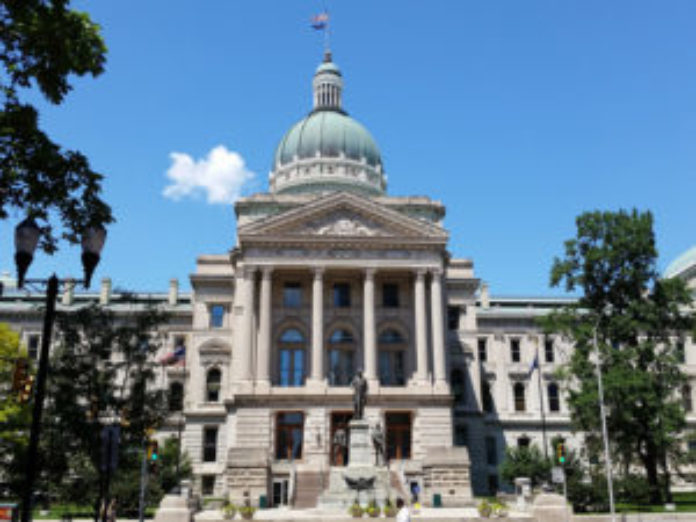Despite a promising new state revenue forecast, Indiana lawmakers will likely have less money to spend on child services and education than they’d hoped for when they start drafting the state’s next two-year budget in January.
State fiscal analysts said Monday that state revenues will increase by $442.8 million in 2020 and $386 million in 2021. But a big increase in funding for the embattled Indiana Department of Child Services and a jump in Medicaid expenses are projected to consume nearly the entire increase.
If legislators give DCS and Medicaid their full requests, that leaves only $35 million in new tax revenue for all other state needs in the first year of the next two-year budget. The second year would have a deficit of $23 million, and the numbers don’t even contemplate increases for Indiana schools, inflationary state agency increases or school safety funding.
“We have a lot of extra money that is going to DCS right away so it makes the other issues that much tougher,” said House Ways and Means Chairman Tim Brown, R-Crawfordsville.
The revenue forecast shows that Indiana should receive about $828 million in new tax collections over the biennium. But the Medicaid program needs about $120 million each year in new dollars.
And the DCS is seeking $286 million in new funding each year as it struggles to meet the needs of Indiana’s abused and neglected children.
Long-festering problems at the DCS exploded into public view last year when its former director resigned in a letter accusing Republican Gov. Eric Holcomb of making management changes and service cuts that “all but ensure children will die.”
Senate Appropriations Chairman Ryan Mishler, R-Bremen, said the DCS request could take up 64 percent of the new revenue in the first year and 74 percent in the second year.
He said lawmakers, whose 2019 session begins Jan. 3, need to meet with DCS officials to find a way to be more efficient and lower that number.
Mishler suggested that spending cuts at other state agencies will be on the table as lawmakers work toward adopting a constitutionally-mandated balanced budget by the Legislature’s April 29 adjournment deadline.
“My colleagues and I will be taking a very careful approach this year, as we do every year, to be sure to fund our priorities — including protecting our state’s most vulnerable youth and supporting education — while living within our means,” he said.
The revenue forecast puts plans for an appreciable teacher pay raise in jeopardy. Every 1 percent of K-12 funding increase costs about $70 million.
Holcomb and Republican legislative leaders have said they want to increase education funding, in part to raise teacher salaries. Legislative leaders have been working with the Indiana State Teachers Association and Stand For Children on a proposal to raise teacher pay.
Micah Vincent, director of Indiana’s Office of Management and Budget, said the administration will work to introduce a budget that maintains state reserves and is fiscally prudent.





